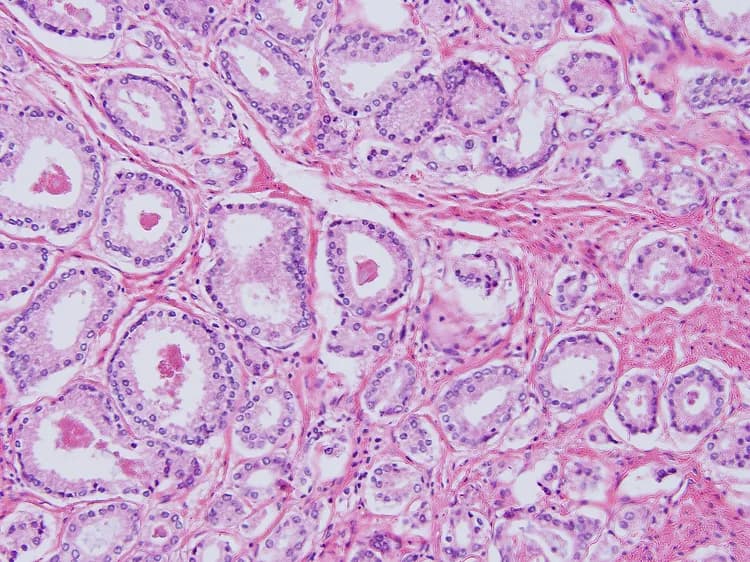
Prostate Cancer Discovery May Make It Easier To Kill Cancer Cells
A newly discovered connection between two common prostate cancer treatments may soon make prostate cancer cells easier to destroy. Drugs that could capitalize on the discovery are already in the pipeline, and a clinical trial to test whether the finding could improve treatments for prostate cancer patients could be only a few years away.
The discovery also may allow doctors to better determine which forms of treatment will most benefit individual patients, and there may be implications for other forms of cancer as well.
An Unexpected Connection
Prostate cancer is the second-leading cause of cancer death among American men. Common treatments include radiation and androgen ablation, and researchers at the University of Virginia School of Medicine have found an unexpected link between the two.
The researchers determined that a cellular signaling pathway activated by radiation -- to halt cell division and allow repair of damage to DNA -- also controls cells' sensitivity to androgen, a male hormone prostate cancer cells need for growth. Androgen and androgen sensitivity, in turn, can affect how susceptible prostate cancer cells (and possibly other cancer cells) are to the radiation treatment used to kill them.
"Now we have a novel link between two different standards of care for advanced prostate cancer," said UVA researcher Dan Gioeli, PhD, of the Department of Microbiology, Immunology and Cancer Biology and the UVA Cancer Center. "For locally advanced prostate cancer, radiation therapy is one of the standards of care, and that induces DNA damage, which would activate this pathway. Another standard of care for metastatic prostate cancer is androgen ablation, and that acts to inhibit androgen receptor activity. Now we have a new molecular understanding of how those two different standards of care might be connected."
Better Prostate Cancer Treatment
With this new information, doctors may be able to manipulate the signaling pathway, Checkpoint Kinase 2, to make it easier to kill prostate cancer cells. By blocking the signaling process, for example, they might sensitize cancer cells to the radiation intended to destroy them. (Gioeli and his colleagues believe that this signaling may be lost as prostate cancer advances, helping to explain why the disease inevitably becomes resistant to androgen deprivation therapy.)
Major pharmaceutical companies are already developing drugs to inhibit CHK kinases, and Gioeli hopes that this will speed the clinical trial testing that could lead to better prostate cancer treatments. Testing in people might begin in only three to five years, though it may take longer depending on how the work progresses, he said.
"The next steps are to see whether our predictions about ... targeting this pathway could enhance cancer-killing in response to radiation or androgen ablation," Gioeli said. "Perhaps it would lead to a three-way combination where we would be looking at how androgen withdrawal sensitizes tumor cells to radiation therapy and whether we can further enhance that sensitization by inhibiting this pathway."
The above post is reprinted from materials provided by University of Virginia Health System. Note: Materials may be edited for content and length.
Disclaimer: DoveMed is not responsible for the adapted accuracy of news releases posted to DoveMed by contributing universities and institutions.
Primary Resource:
Ta, H. Q., Ivey, M. L., Frierson, H. F., Conaway, M. R., Dziegielewski, J., Larner, J. M., & Gioeli, D. (2015). Checkpoint Kinase 2 Negatively Regulates Androgen Sensitivity and Prostate Cancer Cell Growth. Cancer research,75(23), 5093-5105.
Related Articles
Test Your Knowledge
Asked by users
Related Centers
Related Specialties
Related Physicians
Related Procedures
Related Resources
Join DoveHubs
and connect with fellow professionals

0 Comments
Please log in to post a comment.